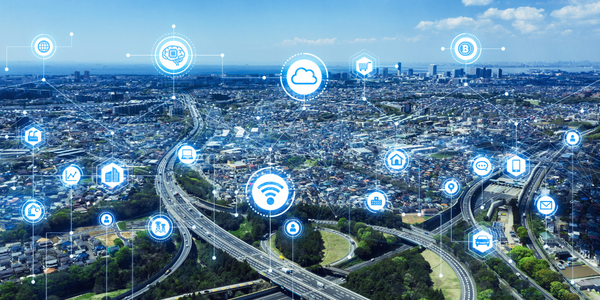Perimeter Security & Access Control

Perimeter security and access control systems protect the external perimeters of a facility, control access to restricted areas, and detect and monitor anomalies. Access control includes the control of persons, vehicles, and materials through entrances and exists in a controlled area or premises. Perimeter detection, in contrast, is the detection of access to the outer limits of a detection area by means of physical barriers, sensors on physical barriers, or exterior sensors. Intrusion alarm systems identify entry or attempted entry of a person or an object into the area and respond to real security breaches and ignoring costly false alarm sources. Perimeter security is the first stage of intrusion security because it detects a breach and triggers an alert, which is a proactive system. Access control relates to permitting or denying access to a person or entity requesting access which is more interactive than intrusion detection, a reactive system.
- Other
- Logistics & Warehousing
The perimeter security market is expected to grow from USD 110.64 billion in 2017 to USD 196.60 billion by 2022, at a Compound Annual Growth Rate (CAGR) of 12.2% between 2017 and 2022.
Source: marketsandmarkets
What is the business value of Perimeter Security?
Perimeter security is the fixing of preventative measures around the perimeter of one’s home, whether it is electric fencing, motion detection beams, warning lights, CCTV systems, and digipass.
Perimeter infrared security systems are extremely cost-effective and easy to install. They are also safe and do not put people at risk in the event of any false alarm being triggered off. These sensors can be well disguised and distributed on various areas of your property, such as gardens, entrances, doors, windows, and porches so that the intruder cannot easily detect their presence.
It is easy to design effective systems for larger or smaller areas through stacking of beam-sets so that intruders cannot jump over or crawl under them.
Systems can also be designed for different levels of risk: for instance, a shopping mall or convention center may require a different level of security than a home.
What is the value of Access Control?
Access control is generally accepted to be a measure taken by either a physical barrier or guarded barrier to prevent unauthorized entry to a property. These methods include spike barriers and boom installations. Further access control measures include gate automation, intercoms, booms and spike barriers.
There are many advantages to using an access control system, which includes:
Accessibility – Access can be controlled using several options. Because of this, traditional keys are no longer needed. In addition to keeping things better organized, the risk of a security breach is reduced.
Monitoring – Seeing who is coming and going from different areas is possible with an access control system. Information as to the time the access card was used is also provided. This enhanced security system gives the company more control over where employees are going, especially if they are not authorized to enter certain parts of the business.
Integration – Access control systems seamlessly integrate with other security products, thereby creating a centralized management solution.
Manageability – Information is stored on a centrally managed database, making it easy to access remotely from any computer on the network. Only a few select people have this authorization.
Business Owners: Business owners prioritize perimeter security and access control to protect their investments, assets, and employees. They invest in security systems, technologies, and personnel to safeguard business premises and maintain operational continuity.
Security Personnel: Security personnel are responsible for implementing and enforcing perimeter security measures and access control policies. They monitor surveillance cameras, patrol the perimeter, and verify the identity of individuals seeking access to the premises, ensuring compliance with security protocols.
What features does the modern perimeter security system have?
Over the last years, the scope of perimeter security solutions have considerably advanced and present a multi-faceted system thanks to which effective safety can be achieved.
Apart from security fencing and other mechanical security measures such as boulders, bollards, and roadblocks perimeter security might include:
- Perimeter alarm
- Video surveillance
- Microwave detectors
- Laser scanners
- Active infrared light barriers
- Microphone sensor cables
- Infrared motion detectors
Access Logs and Audit Trails: Access control systems maintain detailed logs of entry and exit events, recording the time, date, and identity of individuals accessing the premises. These access logs serve as an audit trail for security personnel and can be reviewed to investigate security incidents or unauthorized access attempts.
Surveillance Footage Analysis: Surveillance cameras capture video footage of perimeter areas, entry points, and high-security zones. This footage is stored in a centralized database and can be analyzed to identify security threats, suspicious activities, or breaches in security protocols.
What are the disadvantages of Perimeter Security systems?
The disadvantages of perimeter infrared systems are that less sophisticated systems can be triggered off even by plastic or paper blowing across, rodents or stray animals. If you are connected to the local police station, they may charge you for such “false alarms. Power supply interruptions can cause disturbances and the systems may need re-setting. Home-owners cannot afford to become complacent even when they’ve installed a system, since intruders may also find ways and means to breach security. The placement of the sensors has to be extremely accurate otherwise they are ineffective. It is important to keep in mind that weather conditions like fog and snow may interfere.
And what are the disadvantages of Access Control systems?
The disadvantages of access control systems may include smaller issues such as passcodes, pins, and passwords. To gain access to this type of system, an individual must have very specific information. While this is good news, it can also create a challenge. For maintaining the highest level of security, these pieces of information have to be updated on occasion. Otherwise, there is an increased risk of being hacked.
Case Studies.





